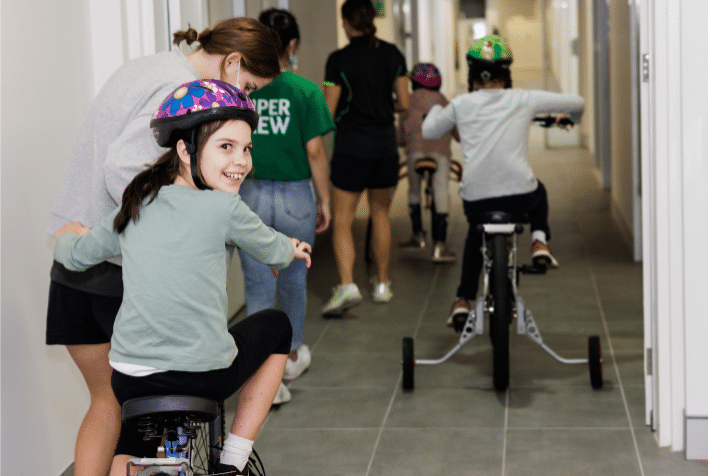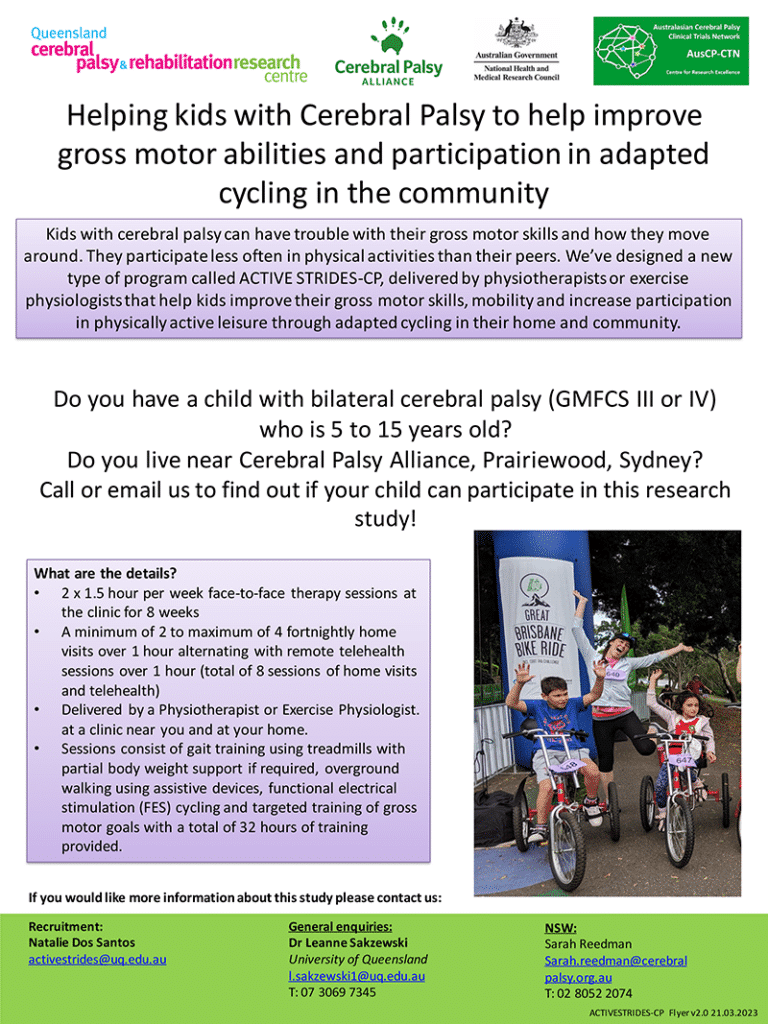
Kids with cerebral palsy can have trouble with their gross motor skills and how they move around. They participate less often in physical activities than their peers. We’ve designed a new type of program called ACTIVE STRIDES-CP, delivered by physiotherapists or exercise physiologists that help kids improve their gross motor skills, mobility and increase participation in physically active leisure through adapted cycling in their home and community.
Who is eligible to take part in this study?
What are the details?
Click here to download a flyer with more information
If you would like more information about this study, please contact:
Recruitment contact: Natalie Dos Santos
NSW contact: Sarah Reedman
E: sarah.reedman@cerebralpalsy.org.au T: 02 8052 2074
General enquiries: Dr Leanne Sakzewski
E: l.sakzewski1@uq.edu.au T: 07 3069 7345
This study has received ethics approvals (HREC/17/QCHQ/77129) and is funded by the NHRMC Research Grant APP2006867 and The University of Queensland, Faculty of Medicine.
